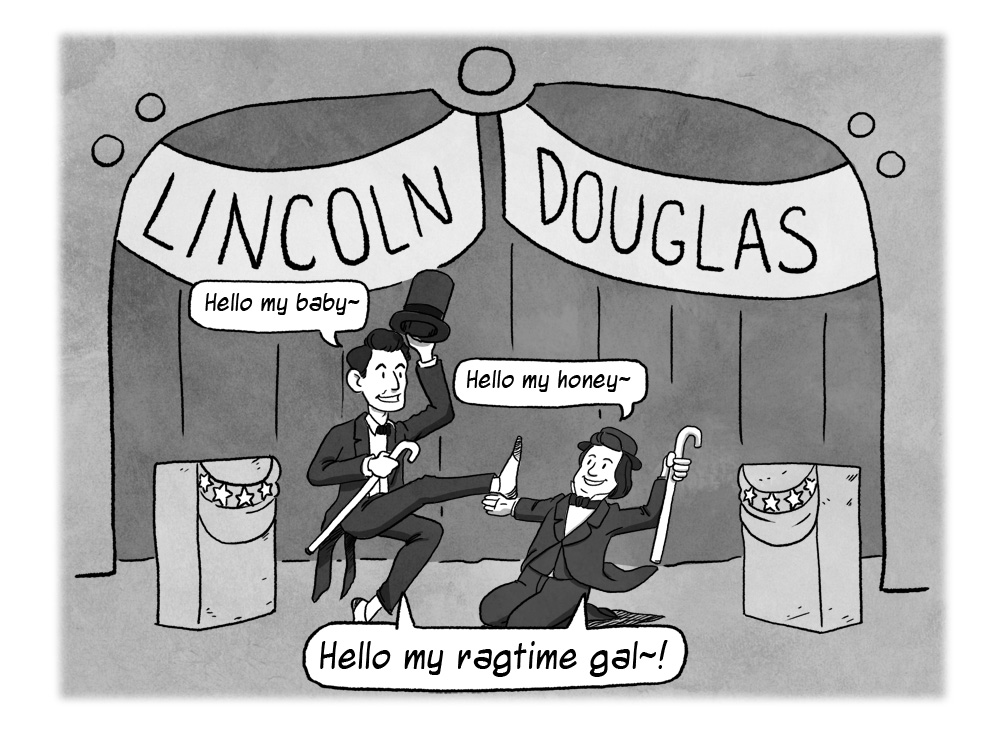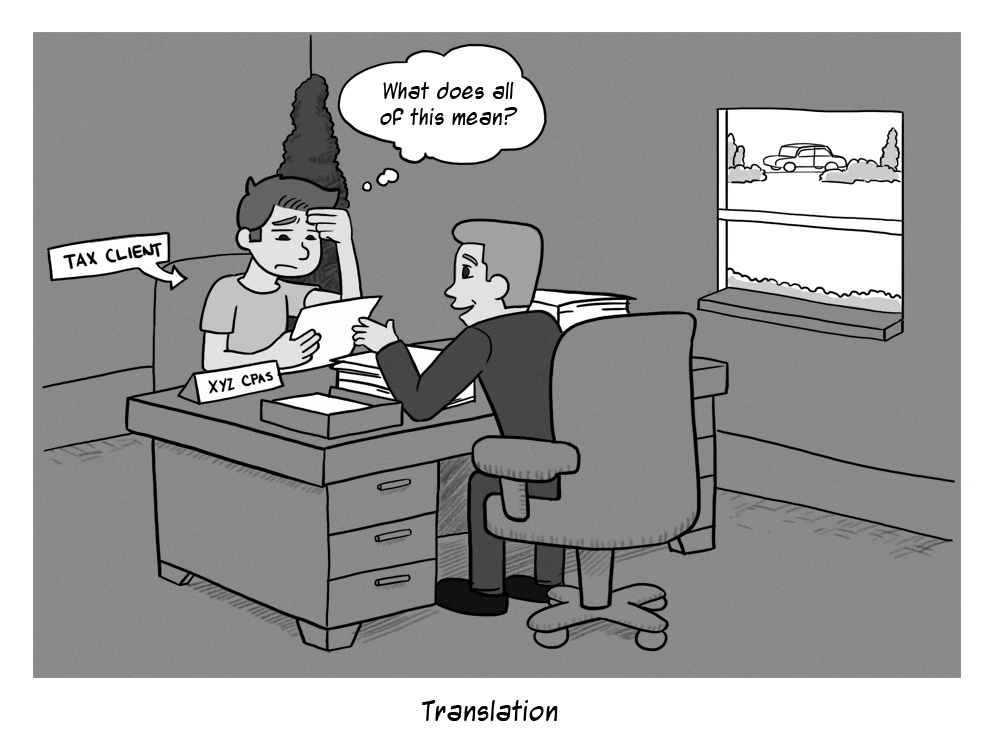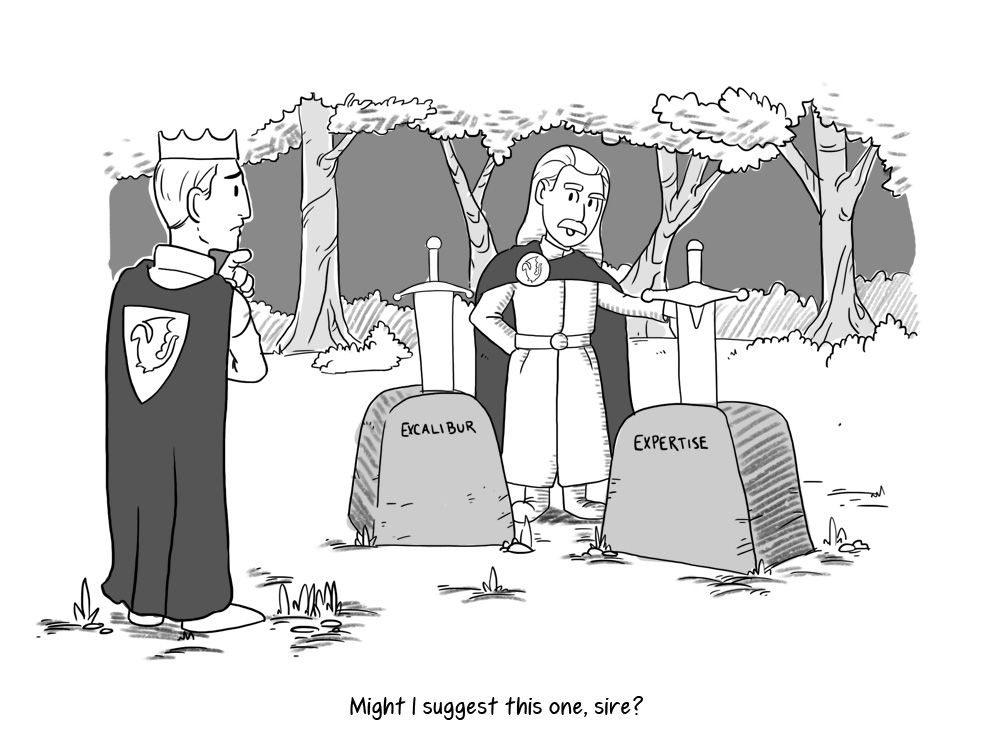December 2016
There is an old adage, "Fool me once, shame on you; fool me twice, shame on me." The lesson is that after having once been fooled one should be more wary and more alert in future dealings. And yet, even after the momentous Brexit vote, exceptionally few people were prepared for Trump winning the presidential election.
These results are indicative of many things, but a lack of warning signals is not one of them. For a variety of reasons such signals have often been viewed as "abstract" or "irrelevant" and have often been dismissed or substantially devalued. Investors would do well to start tuning in because politics has shined a bright light on economic reality and there will be far-reaching consequences. Recent political events should dispel any doubts that, in the words of the 2016 Nobel prize winner for literature, "The times they are a-changin'."
In concise terms, the election represented a burgeoning anti-establishment fervor borne from large groups of people slowly but steadily losing ground economically. Instead of trying to solve this problem, however, too many government officials and mainstream media (MSM) alike have tended to gloss over them by creating rosier narratives. The result is that a large gap emerged between perception and reality for a lot of people. For better and worse, this is exactly where interesting things tend to happen.
This gap was facilitated by MSM which is a primary source of information for many investors and has had an extremely important influence on them. Charged with reporting news, validating sources, checking facts, and largely entrusted with being arbiters of "the truth", MSM in many ways instead became more of a platform for voicing its own beliefs. Rather than investigating players and informing the public, they became players themselves.
Harsh criticism emerged after the election, even from within MSM itself. Charlie Beckett quoted Matt Taibbi [here]: "We were too sure of our own influence, too lazy to bother hearing things firsthand and too in love with ourselves to imagine that so many people could hate and distrust us as much as they apparently do." He didn't stop there: "Just like the politicians, our job was to listen, and we talked instead. Now America will do its own talking for a while. The world may never forgive us for not seeing this coming."
While MSM did not cover itself in glory over the election, neither did social media. Fake news and false information were prominent features of the 2016 campaign landscape and not in a good way. As reported in the Financial Times [here], "One former Facebook staffer also says the way the company is run may have exacerbated the distribution of fake news. Its engineers focus on improving engagement — clicks, likes, comments, shares — as the primary measures of success of any new feature."
The article goes on to say, "Yet the business imperatives the internet platforms follow may have given them too little incentive to exercise this type of responsibility [for content quality]. Weeding out false information ‘hasn’t been a priority’, says Mr Borthwick. ‘Content, more often than not, has been a means to an end — and the end is more sharing, more connectivity’.”
Despite the epic failures of both MSM and social media to responsibly keep people informed, there were still plenty of good sources of information available to those willing to seek them out. Many of these sources involve at least a modicum of effort and many of them cost something, but you get what you pay for. The mosaic created by many of these sources is that economic health is far less robust than many of the headlines suggest.
Our view is that rigorous, independent analysis is not just fundamental to the investment process, but is fun and interesting too. For example, we highlighted the risks of suppressed volatility in the blog post, "Warning lights: To see or not to see" [here]. In addition, we highlighted the important demographic and societal changes that Strauss and Howe described in their book, The Fourth Turning, in a 2014 blog post [here]. According to the authors, “Unraveling-era 13ers [Gen Xers], males especially, have been hit with a one-generation depression. From 1973 to 1992, the real median income from young adult males fell by 28 percent, more than it did for the entire nation from peak to trough of the Great Depression.” Things haven't gotten much better; in the last twenty years, real median income has barely budged.
Further, we reviewed the book, House of Debt, by Atif Mian and Amir Sufi [here] which revealed: "Debt rose disproportionately among lower income and lower net worth households [from 200-2007]. As a result, when home prices fell, 'the net worth of poor home owners was absolutely hammered ... From 2007 to 2010, their net worth collapsed from $30,000 to almost zero'." More recently, the Economist cited numbers [here] from the Bureau of Labor Statistics (BLS) that "homeowners without a college degree have seen the value of their homes appreciate by less than 0.2% since 2012, whereas college graduates have enjoyed gains of 10.8%."
In sum, the idea that a lot of people have not been getting ahead is not an especially new one. But the hard edge of this reality has been softened by headlines reporting that "average" growth has been decent - which it has. Along with this growth, however, has also come rising inequality. While inequality is a somewhat abstract concept the real consequence is that more and more people are struggling just to stay afloat while fewer and fewer enjoy the gains. If you doubt this characterization, just try driving through some small, rural towns that don't have a college. Eat in the local diner. It’s a different world than living in a city on the coast.
Given this perspective of more challenging underlying economic conditions, it shouldn't be surprising that people are upset and that there are political consequences. As Strauss and Howe wrote, “13ers will feel little stake in the old order, little sense that their names and signatures are on the social contract. They will have reached full adult maturity without ever having believed in either the American Dream or American exceptionalism. They will never have known a time when America felt good about itself, when its civic and cultural life didn’t seem to be decaying. From childhood into midlife, they will have always sensed that the nation’s core institutions mainly served the interests of people other than themselves." We noted at the time, "Finally, we do think the Fourth Turning provides an extremely useful paradigm from which to view many of the economic, political, and societal changes going on right now." Copy that.
More recently, JD Vance also provided terrific insights into the thinking of many middle Americans with his book, Hillbilly Elegy. For instance, he notes, "that hillbillies learn from an early age to deal with uncomfortable truths by avoiding them, or by pretending better truths exist. This tendency might make for psychological resilience, but it also makes it hard for Appalachians to look at themselves honestly."
Vance goes on to describe, "Psychologists call it 'learned helplessness' when a person believes, as I did during my youth, that the choices I made had no effect on the outcomes in my life. From Middletown's world of small expectations to the constant chaos of our home, life had taught me that I had no control." From this perspective, it is much easier to understand why some groups of people feel so alienated and not in control of their own destinies that they essentially give up.
As if these hardships weren't enough, many commentators and policymakers have reacted to them with a lack of curiosity and an air of condescension that give every indication they don’t really care. This was captured in an interesting mix of very good economic analysis and striking insensitivity from Larry Summers in Foreign Affairs [here] in which he bemoans a preoccupation with "fiscal austerity, monetary normalization, and moral hazard" - exactly the things that affect a lot of people. Ben Hunt picked up on a similar attitude [here]: "I think that this focus on “education” is the single most tone-deaf and semi-condescending aspect of the business of modern investment management, which I suppose is a pretty bold statement given the sheer number of tone-deaf and semi-condescending things in our line of work."
The response of condescension and misinformation to widening economic hardship exacerbated a sense of alienation and political turmoil. Jeff Spross (quoted by Beckett) criticized the narrative that Democrats based their campaign on as failing to account for "how high up the income ladder wage stagnation has risen." He noted further, "Most of all, it ignored the raw human experience of living in communities that are dying, while distant cities with alien cultures grow fat and powerful and self-righteous." As a result, Vance highlights a common sentiment: "To many of us, the free press - that bulwark of American democracy - is simply full of shit."
In this context, the politics make a lot more sense. As Grant Williams notes [here], "But it wasn’t what he [Trump] talked about that was important. It was who he talked to. Trump talked to the American people. He talked to them in a way they hadn’t been spoken to in a long, long time about things which mattered to them and his angry, emotional speech captured the imagination of an angry, emotional citizenry and connected with them on a visceral level." Michael Moore captured similar sentiments [here]: "Across the Midwest, across the Rustbelt, I understand why a lot of people are angry. And they see Donald Trump as their human Molotov cocktail that they get to go into the voting booth on Nov 8. and throw him into our political system ... I think they love the idea of blowing up the system." Ben Hunt concluded [here] that, "A reset — both in markets and in politics — is coming whether we like it or not."
Our reaction to the election is mixed. On one hand, anti-establishment trends send a clear signal of a desire to change status quo policies that are working for fewer and fewer people. These trends corroborate many of the warning signals we have identified over the past several years and confirm our view that a number of issues have been far more serious than suggested by MSM headlines. Further, by actually acknowledging that problems exist, they represent an important first step in solving them.
On the other hand, the strongest sentiments have been directed at tearing down old institutions, and not at solving problems or creating better policies. Sentiments from "an angry, emotional citizenry" of "blowing up the system" are unlikely to be harbingers of greater political stability. In this respect, the French Revolution provides a useful, if ominous, analogy. While it took time and effort to finally overthrow the Bourbons, the result was every bit as ugly as Bourbon rule itself. In short, it is quite likely to be messy along the way.
More than anything, then, it is extremely important to wake up and smell the coffee for everyone who has been cruising along on "autopilot" assuming that things were moving along fairly well and that whatever might happen wouldn't affect them. Political events have revealed what economic reporting largely missed: There are serious problems that need to be addressed. Further, it is reasonable to expect the politics to become more uncertain. As Beckett highlighted, "It’s not just that Facebook makes politics worse, it’s that it changes politics entirely."
In order to navigate such an uncertain landscape, good information will be critical, yet two key sources have demonstrated serious shortcomings. MSM proved arrogant and lazy and social media has polluted the landscape with false news. More than ever, it will be important to actively think, read, observe, and question in order to get a reasonably accurate perspective. Given the potential for increased volatility and extreme outcomes, the choice to remain uninformed is increasingly likely to be a costly one.
In these pursuits, it will also be useful to consider the full consequences of social media as Cal Newport did in the New York Times [here]. He notes, "Consider that the ability to concentrate without distraction on hard tasks is becoming increasingly valuable in an increasingly complicated economy. Social media weakens this skill because it’s engineered to be addictive. The more you use social media in the way it’s designed to be used — persistently throughout your waking hours — the more your brain learns to crave a quick hit of stimulus at the slightest hint of boredom." In other words, while social media can be an amusing diversion for consumers, it can also be a dangerous distraction for investors. It will be important to be able to focus on the right things.
Of course there are also important implications for the investment environment. Prominent among the parties missing critical signals, regurgitating sunny narratives, and de-emphasizing darker realities have been many investment professionals. Often they have been motivated by the same business incentives as MSM – to attract as many people as possible with pleasant stories. This has worked while strong tailwinds have boosted stocks and bonds; it will be counterproductive when the winds change. Navigating more demanding conditions will require independent analysis and a perspective of history that encompasses challenges not experienced in our lifetimes. Now is the time to make sure your adviser or consultant or money manager is fully prepared for such challenges.
In addition, Russell Napier highlighted that many individuals actually have something of an advantage when asset prices are high in a recent Realvision TV interview [here]. He says he often gets asked, "Tell me the one thing that I could do that nobody else is doing?" and he answers with a question, "Have you tried patience?" He observes that, unfortunately, "The professionals are themselves being gamed to have no patience." While this leaves investors with few good choices, it also makes those who can exercise patience easier to find.
The overall lesson to take away from the election results is that times really are changing – for all of us and across many dimensions of our lives. Many of these changes have been downplayed or ignored but politics has reconnected perception with reality in many respects. Investors should be on high alert; the consequences could be very serious. For older investors it will increasingly difficult to preserve wealth. For younger investors there may well be new opportunities to invest in stocks at more attractive prices. Either way, Dylan's words make for good investment advice today: "And if your breath to you is worth saving, then you better start swimming or you'll sink like a stone."





 RSS Feed
RSS Feed